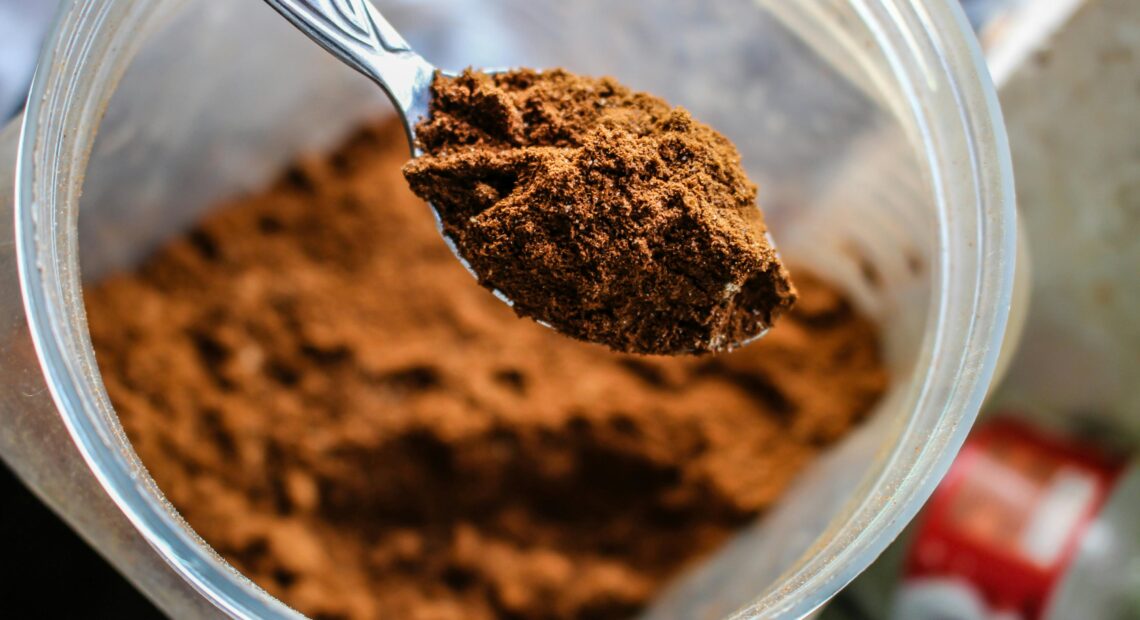Protein Powder Myths That Need a Reality Check

The Truth Laid Bare
Every gym has its legends. Those whispered conversations about magical powders that supposedly transform skinny frames into muscular physiques overnight.
Protein powder has become the superhero and villain of nutrition, surrounded by more drama than a fitness reality show.
This isn’t another generic supplement guide. This is about cutting through the noise and understanding what protein powder really does – and doesn’t do.
Myth #1: More Protein Always Equals More Muscle
Most people think protein powder is like a muscle-building cheat code. Dump more powder, get more muscles. Simple, right?
Wrong.
Muscle growth is a complex dance involving:
- Your training intensity
- Your body’s unique metabolism
- Genetic factors
- Precise nutritional balance
Think of protein like fuel for a car. You can’t make a Toyota go faster by constantly overfilling the tank.
More of anything is not good. Similarly, protein powders have an optimal level. When you take it beyond that level, it doesn’t help.
Myth #2: Plant-Based Protein Powders Are Inferior to Whey
Many individuals believe that plant-based protein powders are somehow “second-class” supplements, lacking the muscle-building potential of animal-based proteins. If we are to compare, both have their differences.
For example, animal-based protein is not lactose-free but plant-based are free from lactose. Also, plant-based protein might have less protein quantity. Nevertheless, both help with muscle building.
Evolutionary Perspective: Plant proteins have been sustaining human muscle development for millennia. Modern processing techniques have dramatically improved plant protein quality and digestibility.
Comparative Analysis:
- Whey Protein: Fast absorption, complete amino acid profile
- Plant Protein Blends: Often combine multiple sources to create complete proteins
- Emerging Research: Shows comparable muscle protein synthesis rates when consuming strategically formulated plant protein combinations
Myth #3: Protein Powder Is Only for Bodybuilders
This myth restricts protein supplementation to a narrow demographic, overlooking its broader health implications.
As per Harvard Health Publishing (HHP), protein powders aren’t just for fitness enthusiasts. Rather, it’s necessary for the immune system and organs.
Comprehensive Benefits:
- Muscle maintenance for aging populations
- Recovery support for endurance athletes
- Nutritional supplementation for individuals with dietary restrictions
- Weight management strategies
- Immune system support
Myth #4: All Protein Powders Are Created Equal
Not all protein powders represent the same quality or nutritional profile. Manufacturing processes, sourcing, and additional ingredients significantly impact their effectiveness. For example, a whey protein has more protein content than a mass gainer. The latter also has more calories.
Quality Evaluation Criteria:
- Protein source authenticity
- Heavy metal content
- Amino acid completeness
- Additional nutritional fortification
- Third-party testing certifications
Myth #5: Protein Powder Causes Kidney Damage
This persistent fear stems from misunderstood medical literature and incomplete scientific understanding. Though protein powder can increase filtering tasks for the kidneys, it isn’t harmful according to various studies.
Medical Perspective: For healthy individuals, high-protein diets and supplementation do not cause kidney damage. Individuals with pre-existing kidney conditions should consult healthcare professionals.
Longitudinal Studies: Demonstrate no significant adverse kidney effects in healthy adults consuming recommended protein quantities.
Myth #6: You Must Consume Protein Immediately Post-Workout
The mythical “anabolic window” suggesting protein must be consumed within 30 minutes after exercise has been largely debunked.
Modern Understanding:
- Protein absorption is a continuous process
- Total daily protein intake matters more than precise timing
- Muscle protein synthesis can be stimulated for up to 24-48 hours post-exercise
Practical Recommendations
- Choose protein powders from reputable manufacturers
- Prioritize whole food protein sources
- Understand your individual nutritional needs
- Consult healthcare professionals for personalized advice
- Consider your specific fitness and health goals
The Final Scoop
Protein powder isn’t magic. It’s a tool. Sometimes helpful, sometimes unnecessary – but always personal. Your nutrition is a journey, not a destination. Listen to your body, respect the science, and forget the hype.
Image: Not all protein powders represent the same quality or nutritional profile. Credit: Samer Daboul













